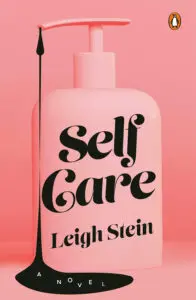Whether you loved them or hated them, few entrepreneurs generated more buzz in the 2010s than so-called “girlbosses”—young, mostly white, female founders who disrupted industries including beauty, tech, fitness, personal care, and coworking with distinctly “feminine” flair (and millions in venture capital).
But just as quickly as their rise, it seems that female founders are now dropping like flies: In just the past month, the Wing’s Audrey Gelman, Reformation’s Yael Aflalo, and Refinery29’s Christene Barberich have all left their respective positions after reports of abusive behavior toward Black staffers. These high-profile exits follow a slew of scandals and “stepping backs” in the year before at companies such as Away Suitcases, Outdoor Voices, and Brandless.

The book is at once both hilarious and horrifying in its accuracy at portraying a certain breed of white feminism, littered with such banal affirmations as “Women are people. All people are human beings. Believe women.” These are the first three of Richual’s “Ten Commandments,” which are “stenciled in fuchsia and sherbet on the wall by reception.” The story unfurls as the company’s female founders reckon with how truly they believe and abide by those statements, and whom they apply to when scandal arises at their own company.
Fast Company sat down with Stein, the author of this and three other novels, to discuss the rise and fall of the #GirlBoss, the limitations of cancel culture, and her own experiences running a 21st-century feminist organization.
Fast Company: You ran a 501(c)(3) and conference for several years and were named a “Leading Feminist” by the Washington Post. How did that experience inspire Self Care?
Leigh Stein: In 2014, I was a member of a secret Facebook group that had 30,000 members who were women writers. I had the idea to start a conference for this Facebook group, and that became [BinderCon]. For the next three years, I organized two conferences a year, one in New York City and one in L.A., and I took over the Facebook group with a team. The conferences were truly diverse and inclusive, but the Facebook group was filled with conflict and drama and sucked up a lot of my time and energy, and ultimately I couldn’t do it anymore. And that experience inspired me to start writing this novel about a quote unquote “leading feminist” who becomes a kind of for-profit girlboss.
FC: The book is set in a very specific time period, right after Donald Trump got elected in 2016. When did you start writing it, and why did you pick that time?
Stein: I started writing it in May 2017 and I wrote it for about two years. My book takes place in like February or March 2017, and I did that deliberately because it seemed like such an insane time, there was such outrage and disbelief, and a lot of anger amongst women, and that kind of snowballed into the #MeToo movement in the fall of 2017, which informed my plot. But I also think this kind of motivating drive to beat men, to kind of get them out of their seats so that we could take the seats ourselves, is really related to Sheryl Sandberg’s [2013 leadership book] Lean In feminism, that is all about kind of self-empowerment and taking that seat at the table. It can be really motivating and inspiring, but what we now realize is that [that type of opportunity] was only available to a certain kind of woman, to a certain kind of white millennial who might already have some connections and status.

Stein: Brace yourself, because the survey is real. It was developed by Bustle for their freelance writers. It’s pretty creepy. While I was writing this book, I was there for the personal essay boom, and I was seeing that your identity was becoming increasingly important to the subject matter that you write about. The media industry is increasingly publishing work by marginalized voices, which I don’t think is a bad thing, but I think there is a downside if you only let those “marginalized voices” write about their identity and not, say, review the latest Fiona Apple album or anything else.
FC: Richual starts off as a nice idea, but as with many of the real-life startups we’ve seen, the founders end up being the opposite of their inclusive and woke ideals. Considering when the book was written, it almost seems like you predicted this reckoning.
Stein: Part of the research was just running my own nonprofit and seeing the money that certain corporations had to spend on sponsoring our conference—and what they wanted in return for that money. It was all very optical: We were giving them the ability to say that they are “feminist” in exchange for their money. Even though I was broke, I got to go to fancy lunches and get photographed for Time Out New York. These founders were all young, childless women in their twenties and thirties who looked good on the covers of magazines. The optics and aesthetics were part of it.
I’m also fascinated by hypocrisy. We just saw this with Black Lives Matter, Netflix tweeting their statement out, and I just thought, “Netflix, you don’t pay any federal income tax.” Or Amazon saying they stand for Black lives, and then you hear that the conditions in their warehouses are so deplorable. It’s all spin.
FC: Another very prescient plotline is Khadijah’s, a Black woman who writes all the site’s content and essentially runs the day-to-day operations—and who’s terrified even to ask about maternity leave after she finds out she’s pregnant. Did you know this reckoning around white feminism was coming?
Maren and Devin know that they need to hire a woman of color—that they can’t just have a white company. So they’re aware in a way, and I don’t think awareness is bad. But Khadijah is definitely tokenized. She’s a face in the photographs, she can make Black History Month listicles for them, but in the book she’s also really the voice of reason. She’s the one who sees how this could be a feminist workplace if they did have parental leave, if they put their values into practice instead of just having them as a shiny veneer for the brand.
I think I got lucky with the timing of my book, that I sort of predicted this. But what I’m hearing from women at these sorts of companies is that the women at the top are white, and they’re not totally aware of the disconnect between their brand and their workplace practices.
Recognize your brand’s excellence by applying to this year’s Brands That Matter Awards before the early-rate deadline, May 3.
